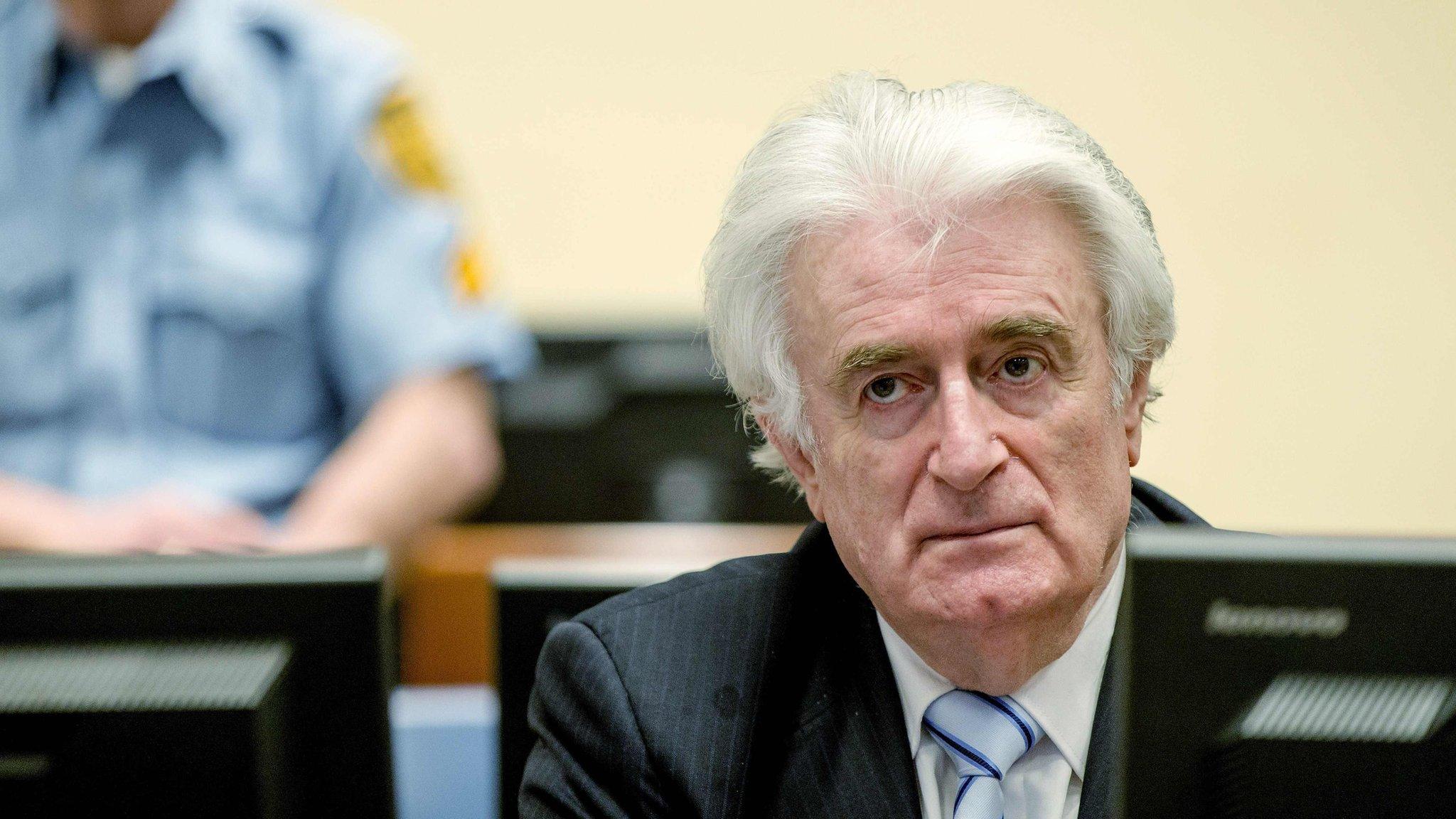Can Serb mayor ease Bosnia's Srebrenica pain?
- Published
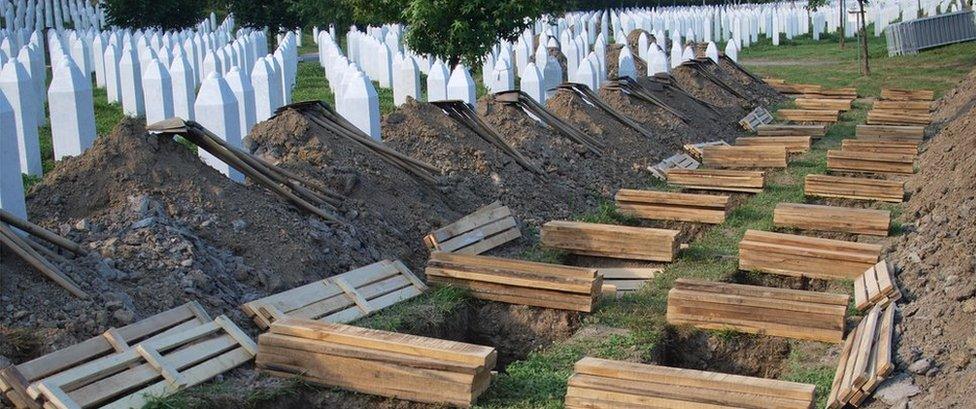
About 8,000 Bosnian Muslim men and boys died at the hands of Bosnian Serb forces in 1995
Even by the standards of 2016, Mladen Grujicic's election as mayor of Srebrenica was far from straightforward.
Because Srebrenica will forever be linked to the Bosnian Serb forces' massacre of around 8,000 Muslim men and boys in 1995. And Mr Grujicic is the first ethnic Serb to be mayor of this ethnically mixed town in almost 20 years.
The previous holder of the post, Camil Durakovic, may not literally have been dragged kicking and screaming from office. But he did protest to Bosnia's election commission and triggered a recount.
After a lengthy appeal, Mr Grujicic was eventually confirmed as mayor and his achievement caused significant disquiet locally and internationally.
The ethnic question
His ethnic background alone would have been enough to raise concern in Bosnia-Herzegovina, a country divided by the 1995 Dayton peace agreement into two "entities".
The Federation is home to most of the country's Bosniaks (Bosnian Muslims) and ethnic Croats, while in Republika Srpska (RS) the majority of the population is ethnic Serb.
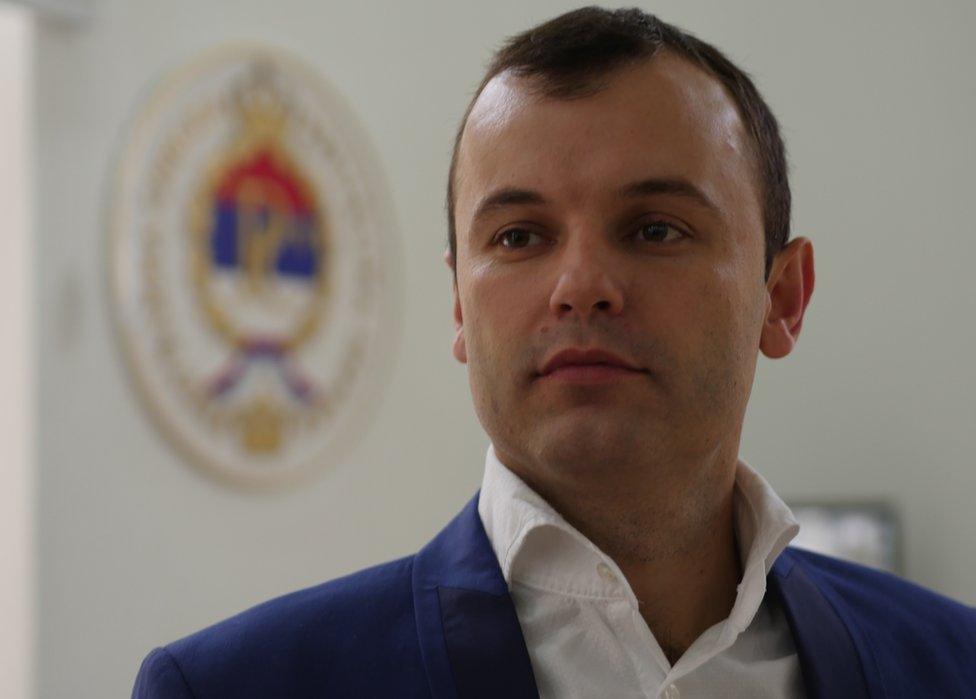
Mladen Grujicic says his earlier sympathies for ultra-nationalists do not reflect his views today
Regardless of ethnicity, Bosnians believe many of their public officials use the politics of fear and allegations of corruption are rife, while they struggle to get by in a deeply dysfunctional country.
But there were very different reasons for the kerfuffle surrounding Mr Grujicic's rise to power in Srebrenica.
The mayor and the genocide
Srebrenica is in Republika Srpska. And during the election campaign Bosniaks here were alarmed when he refused to use the word "genocide" to describe the 1995 massacre.
Then a photograph emerged of Mr Grujicic posing in a cap similar to those worn by the Chetniks, a World War Two resistance movement, whose name was adopted by ultra-nationalist Serb paramilitaries in the 1990s.
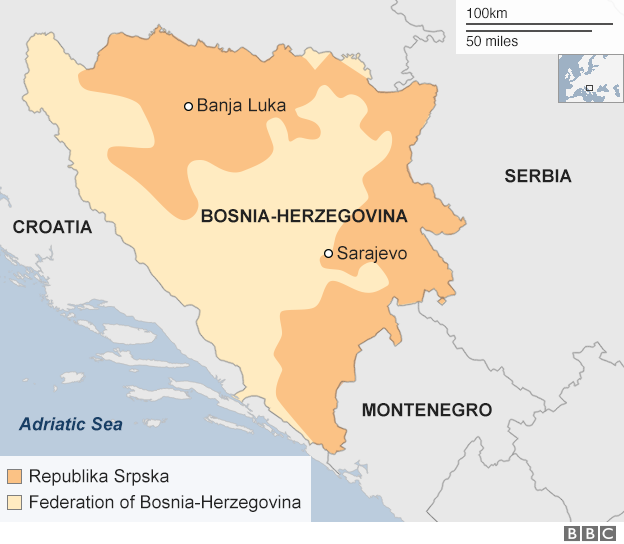
Since taking office, Mr Grujicic has been keen to tone down the controversial rhetoric, at least when international visitors are in town. He told the BBC that he was committed to representing all the people of Srebrenica, regardless of ethnicity.
"It's media hype that people are worried that I'm Serb and the mayor," he said.
"The most important thing now is to boost the economy. Because we used to have 15,000 people living here - and now we have 5,000. We have to stop people leaving. The easiest way is if you have a person who does not discriminate against anyone and gives equal opportunities to everyone."
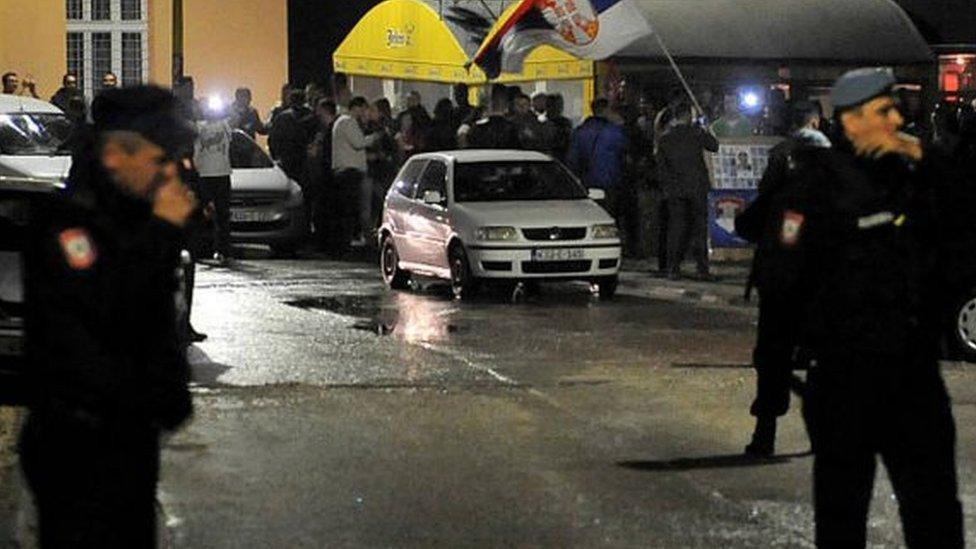
Some residents celebrated when it emerged that Srebrenica was to get its first Bosnian Serb mayor in nearly 20 years
Asked about his sympathies for ultra-nationalist groups, Mr Grujicic insists that donning the Chetnik-style cap was a youthful indiscretion, which does not reflect his views today.
"We all have some private pictures taken at certain points in our lives. When it was taken I wasn't even contemplating becoming mayor of Srebrenica."
"In any case, the cap is part of the folklore, the traditional outfit of people here. When it comes to the insignia in the photo, that wasn't the Chetnik insignia - this badge was worn by the army of the Kingdom of Yugoslavia, the one in which Bosniaks served as well."
Locals may be heartened by Mr Grujicic's promise to work for everyone. "He's a new hope, he's young; we expect some changes for the better," says Dzeneta, a Bosniak woman.
But for Bosnia as a whole, the signs are not encouraging.

More on Srebrenica and the Bosnian war
What happened at Srebrenica? Explained in under two minutes

After a couple of years in which it seemed that political leaders were at least starting to work in the common interest at the national level, divisions are widening again.
The Bosniak member of the country's three-person presidency is trying to revive genocide charges against Serbia at the International Court of Justice. This has angered his Serb counterpart, who has warned that the country could be destabilised.
Meanwhile, Republika Srpska's president is dangling the threat of a secession referendum. And Bosnia's Croatian National Assembly has renewed its demand for a third, mainly ethnic Croat, entity, separate from the Federation.
Zoran Ivancic, the founder of the Public Interest Advocacy Centre think tank, says the recent focus on the economy is dangerous when grievances from the conflict of the 1990s remain unresolved.
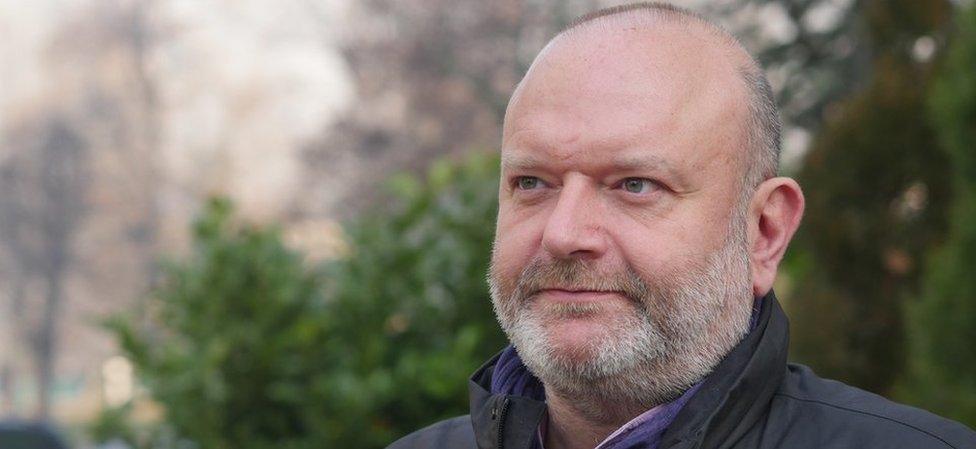
Zoran Ivancic argues that the EU has mistakenly failed to focus on reconciliation in Bosnia
The EU's reform agenda in Bosnia intentionally sweeps justice and reconciliation under the carpet, he argues. "Instead, everyone talks about employment and GDP, like that will reduce the ethnic hate and potential for future conflicts."
The people of Srebrenica in 1995 suffered the most harrowing consequences of Bosnia's divisive politics.
And there is little tolerance now among people on its drab, near-empty streets for either the leaders in Sarajevo or the RS capital, Banja Luka.
"I am not interested in politics or politicians; I cannot even bear the sight of them," says one woman.
"No-one lives here, that's the problem. Srebrenica was always governed by people from the outside," adds a man.
The election of an ethnic-Serb mayor may have raised eyebrows well beyond Srebrenica, but many of its population believe they have bigger problems than that.
Asking them to choose between economic revival and reconciliation seems artificial, when they - like the rest of Bosnia - desperately need both.
- Published15 March 2017

- Published24 March 2016
